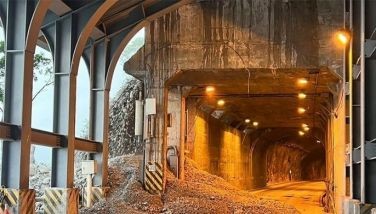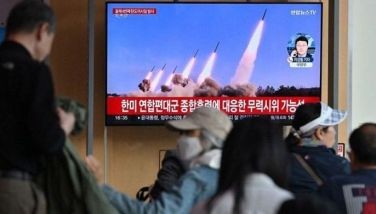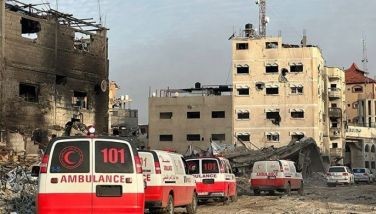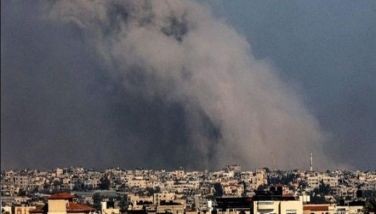The 'other' Tiananmen: 30 years ago, protests engulfed China
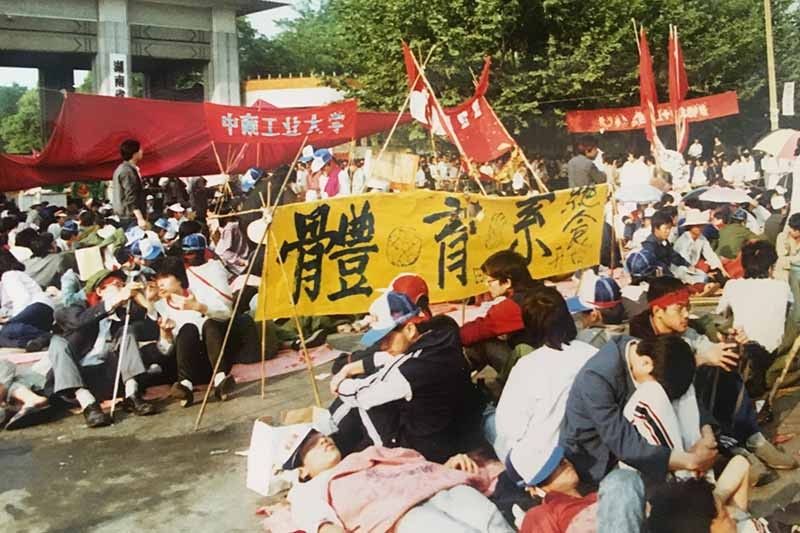
CHENGDU, China — Karl Hutterer stood on the rooftop of his hotel and watched as Chinese police fired tear gas into the square and truncheon-wielding security forces moved in under the cover of night in June 1989.
He was not anywhere near Tiananmen Square. Hutterer was more than 1,800 kilometres (1,100 miles) away in the southwestern city of Chengdu, one of many where thousands of citizens took to the streets during the tumultuous spring that shook China three decades ago.
Beijing was the epicentre of student-led protests, with hundreds or possibly more than 1,000 killed by soldiers on June 4, 1989.
But Hutterer's testimony is a reminder that large-scale demonstrations had erupted all around China.
"I saw bodies taken, wounded or dead possibly, out of the hospital down the street from the monument," Hutterer, then a 49-year-old anthropology professor from the US, told AFP.
One person gestured to a spot where someone was beaten to death, he said.
According to The Tiananmen Papers, a set of leaked documents that allegedly cover internal Communist Party meetings and reports, protests ignited across more than 100 cities in China at the end of May.
"This was a nationwide mass movement -- this was a people's movement -- where everyone shared, at a bare minimum, a desire for more freedoms and more rights," said Andrea Worden, who taught English at the Hunan Medical College in 1989 and witnessed mass protests in central Hunan province.
But in part due to the lack of foreign media outside the capital, many stories from the provinces have been lost as Chinese authorities systematically erase and re-write history, and punish those who question it.
"It's a matter of time before it completely disappears," Worden said.
Protesting in solidarity
Between April and June of 1989, citizens from Lanzhou city in northwestern China to southern Guangdong province called for freedom of speech and railed against corruption -- galvanised by economic anxiety, government interference in their personal lives, and desire for democracy.
But many also reacted to the events transpiring in Tiananmen Square.
In Changsha, the capital of Hunan, Worden estimates at least 20,000 students demonstrated on May 17, carrying posters saying "Support the Beijing hunger-strikers".
A few days later in Changchun, northeastern Jilin province, several thousand factory workers marched to support the fasting students in the capital, said Tang Yuanjun, then an engineer at First Automotive Works (FAW) Group who participated in protests.
As word spread about troops opening fire in Beijing, people across China braved the streets in solidarity and anger.
"It is because of their (the government's) cruelty that we were not afraid," Ding Mao, one of the student leaders at Lanzhou University, told AFP.
"We felt an implacable hatred towards the government for going back on their word with students," he explained.
On the night of June 4, Ding said he led other students to a bridge crossing the Yellow River, where they staged a quiet sit-in.
"That night, the whole student body did not sleep," said another student protester from Lanzhou University, who requested anonymity.
"When we heard the news that they had opened fire, we were furious," he said, estimating that at least several thousand people went out to block roads, bridges, and the railway tracks from troops.
Heavy price
Many protesters and residents in the provinces paid a heavy price for their participation in the 1989 demonstrations.
Tang, the automobile engineer, was sentenced to 20 years in prison for "counter-revolutionary" activities.
"It felt like the Cultural Revolution, as if that had returned again," said the 62-year-old, who was released after eight years and later fled to the US by way of Taiwan.
In Chengdu, death toll estimates vary from 10 to 300, according to "The People's Republic of Amnesia", a book on the Tiananmen protests by Louisa Lim, who drew from leaked US diplomatic cables, a whistleblowing Communist Party member, and eyewitnesses.
More than 100 students were taken to the hospital with head injuries, according to The Tiananmen Papers, which found that police had beaten many people with electric prods.
Security forces worked on demonstrators "with truncheons and knives until they were motionless", wrote Hutterer in notes dated June 10, 1989, that combine his own experience and secondhand accounts from friends.
"Even people who lay on the ground and pleaded for mercy were clubbed," he wrote.
Thirty years later, Chinese authorities regularly scrub online posts about the Tiananmen protests, or punish efforts to memorialise them.
In April, four Chengdu-based activists were handed prison sentences of between three and three-and-a-half years for advertising and selling alcohol with labels commemorating June 4.
For the government, June 4 is "a scar it can never reveal", said the protester from Lanzhou University.
While the Tiananmen protests may feel "very distant" for the younger generation, it has left a deep impression on those who experienced it, he said.
"No matter what career they have now, or what perspective they hold, or whether or not they still bring it up," he said, "for our generation, this has left a deep mark in our minds."
- Latest
- Trending














